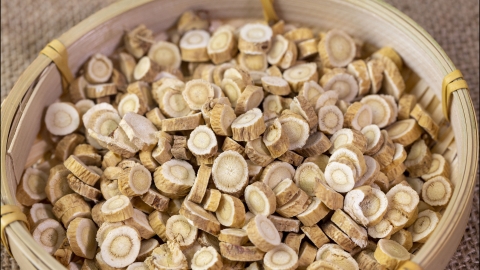Can Dang Gui, Huang Qi, and Mai Dong be boiled together in water for consumption?
Generally, Angelica sinensis (Dang Gui), Astragalus membranaceus (Huang Qi), and Ophiopogon japonicus (Mai Dong) can be boiled together for consumption. However, the appropriate dosage should be determined under the guidance of a TCM practitioner. Detailed explanations are as follows:

Angelica sinensis is known for its function of nourishing and activating blood circulation, Astragalus membranaceus can replenish qi and strengthen the body's defensive barrier, while Ophiopogon japonicus has effects of nourishing yin and clearing heat. These three herbs do not have compatibility contraindications. For individuals experiencing symptoms such as deficiency of both qi and blood, physical weakness, or pallor, combining these herbs under the guidance of a TCM practitioner may produce complementary and synergistic effects.
However, long-term or excessive consumption may cause adverse effects. Overdose of Astragalus membranaceus may lead to chest tightness, dizziness, and other symptoms; excessive Angelica sinensis may cause diarrhea and abdominal pain; and excessive Ophiopogon japonicus may impair the spleen and stomach's yang energy. It is recommended to consult a TCM practitioner before use, adjust the combination and dosage based on tongue and pulse diagnosis, and avoid indiscriminate combination. When using these herbs, ensure reliable sourcing and follow correct dosage and decoction methods to minimize the risk of adverse reactions.
When consuming water boiled with these three herbs, it is advisable to maintain healthy lifestyle habits and avoid spicy and irritating foods to prevent interference with the herbal efficacy.






